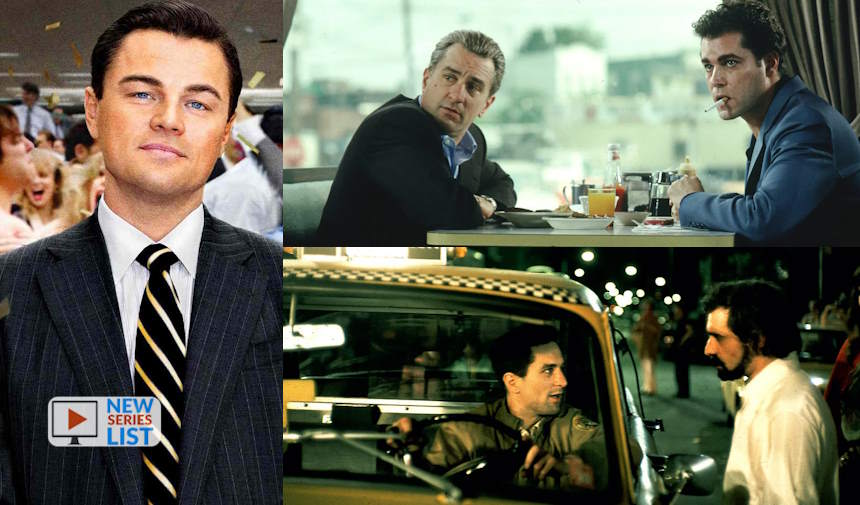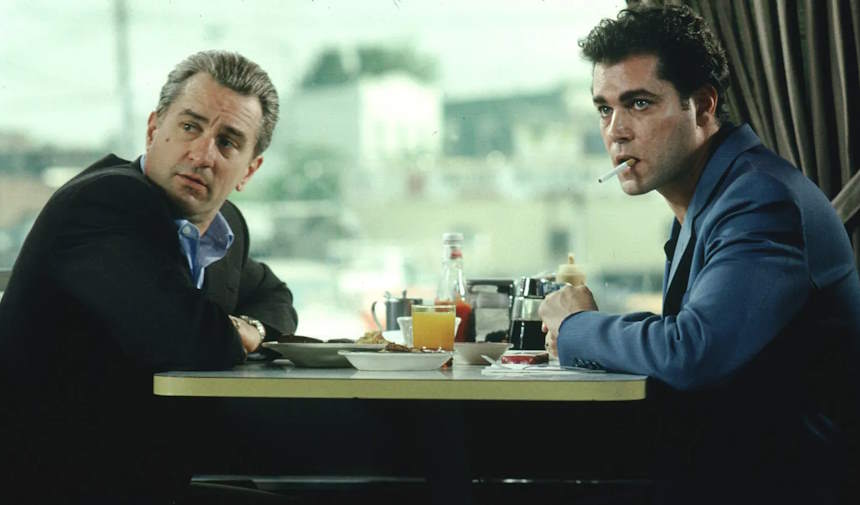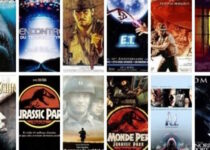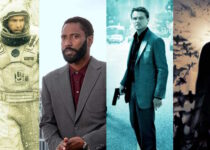Martin Scorsese Movies in Order of Release: Every Martin Scorsese Movie in Chronological Order
If you’re truly interested in exploring the cinematic masterpieces of Martin Scorsese, then examining his filmography in the order of their release is an excellent way to appreciate his evolution as a filmmaker. Here is a list of Martin Scorsese movies in order of release.
Starting from his early works such as “Who’s That Knocking at My Door” (1967) and moving through iconic classics like “Taxi Driver” (1976), “Raging Bull” (1980), and “Goodfellas” (1990), you’ll witness a remarkable journey through the history of modern cinema.
Each film not only reflects Scorsese’s unparalleled storytelling ability but also showcases his unique directorial style and profound understanding of human character. By delving into these films sequentially, you can observe how Scorsese’s themes, techniques, and artistic vision have matured over time, offering a richer appreciation for one of the most influential directors in movie history.
Martin Scorsese Movies in Order of Release: Every Martin Scorsese Movie in Chronological Order

When discussing the pantheon of legendary filmmakers, Martin Scorsese’s name inevitably rises to the top. His unparalleled ability to craft compelling narratives and create unforgettable characters has solidified his status as an iconic filmmaker. Scorsese films are not just movies; they are profound experiences that leave a lasting impact on audiences worldwide.
The filmography of Martin Scorsese is a treasure trove of cinematic masterpieces. From the gritty streets depicted in “Taxi Driver” to the intricate world of organized crime in “Goodfellas,” each film showcases his exceptional storytelling prowess and directorial finesse. Scorsese’s unique vision and meticulous attention to detail have earned him critical acclaim and a devoted fan base.
What sets director Martin Scorsese apart is his unwavering commitment to exploring complex themes such as morality, redemption, and human nature. His films often delve deep into the psyche of their characters, offering viewers an intimate look at their struggles and triumphs. This depth of exploration ensures that each viewing reveals new layers of meaning, making his works timeless.
In conclusion, Martin Scorsese’s contributions to cinema are nothing short of extraordinary. His films continue to inspire and influence both audiences and aspiring filmmakers alike. Embracing the legacy of this iconic filmmaker means immersing oneself in a rich tapestry of stories that transcend time and resonate with universal truths. If you haven’t yet delved into the world crafted by this master storyteller, now is the perfect time to do so—prepare to be captivated by one of cinema’s greatest legends.
Mean Streets (1973)
“Mean Streets” (1973) is a cornerstone in the world of cinema, marking the arrival of Martin Scorsese as a visionary director. This early Scorsese film captures the gritty essence of New York City’s Little Italy, blending raw storytelling with an authentic depiction of urban life. The movie features standout performances by Harvey Keitel and Robert De Niro, whose portrayals of complex characters navigating crime and morality set a new benchmark for character-driven narratives.
Harvey Keitel’s role as Charlie showcases his ability to convey internal conflict with astounding subtlety, while Robert De Niro’s Johnny Boy bursts onto the screen with reckless energy and charisma. Their dynamic chemistry not only drives the plot but also cements “Mean Streets” as a seminal work that would influence countless films to come.
For anyone interested in the evolution of modern filmmaking, “Mean Streets” is an essential watch. It offers a glimpse into Scorsese’s early style—marked by kinetic camera work, masterful use of music, and deeply personal storytelling—that would later define his illustrious career. This film is not just an early piece in Scorsese’s oeuvre; it’s a pivotal moment in cinematic history that continues to resonate with audiences today.
Taxi Driver (1976)
When discussing the pantheon of great American cinema, it’s impossible to overlook “Taxi Driver” (1976), a film that stands as a testament to Martin Scorsese’s directorial genius. This seminal work not only solidified Scorsese’s place among the elite filmmakers but also introduced audiences to one of the most complex and unforgettable characters in cinematic history: Travis Bickle.
Travis Bickle, portrayed by Robert De Niro, is a character that encapsulates the alienation and inner turmoil of urban life. His descent into madness is both harrowing and compelling, making “Taxi Driver” an essential study in character development. De Niro’s performance is nothing short of transformative, capturing the nuances of a man at war with himself and society.
Adding another layer of brilliance to this masterpiece is Jodie Foster’s performance as Iris, a young girl trapped in a life she cannot escape. Foster’s portrayal earned her critical acclaim and showcased her immense talent at such a young age. Her interactions with Bickle are some of the film’s most poignant moments, highlighting themes of innocence lost and redemption sought.
“Taxi Driver” remains one of Martin Scorsese’s most influential movies, continually referenced in discussions about film noir and psychological thrillers. Its exploration of loneliness, societal decay, and moral ambiguity resonates just as powerfully today as it did over four decades ago. For anyone seeking to understand the depths that cinema can plumb into human psyche and urban despair, “Taxi Driver” is an indispensable experience.
Raging Bull (1980)
When discussing cinematic masterpieces, one cannot overlook the sheer brilliance of Martin Scorsese’s “Raging Bull” (1980). This film stands as a testament to the power of storytelling and character portrayal, cementing its place in the annals of movie history. At its core, “Raging Bull” is more than just a biographical sports drama; it is a profound exploration of human nature, ambition, and self-destruction.
Robert De Niro’s portrayal of Jake LaMotta is nothing short of extraordinary. His dedication to embodying the troubled boxer—both physically and emotionally—earned him an Academy Award for Best Actor. De Niro’s performance transcends mere acting; he becomes LaMotta, allowing audiences to feel every punch, every moment of triumph, and every descent into despair.
Scorsese’s direction in “Raging Bull” showcases his unparalleled ability to blend raw emotion with technical prowess. The black-and-white cinematography adds a timeless quality to the film while emphasizing the gritty reality of LaMotta’s world. The fight scenes are choreographed with meticulous detail, making each bout feel intensely personal and visceral.
In essence, “Raging Bull” is not just one of Martin Scorsese’s finest movies; it is a cornerstone in cinematic history that continues to influence filmmakers and captivate audiences decades after its release. If you have yet to experience this masterpiece, now is the time to witness why it remains an enduring classic in American cinema.
The King of Comedy (1982)
Martin Scorsese’s “The King of Comedy” (1982) stands as a masterful exploration of the dark comedy genre, blending unsettling themes with sharp wit to create a film that’s both thought-provoking and entertaining. At its core, “The King of Comedy” is a compelling character study that delves into the psyche of Rupert Pupkin, brilliantly portrayed by Robert De Niro. Pupkin’s desperate quest for fame and recognition serves as a poignant commentary on the obsession with celebrity culture.
One cannot discuss this film without acknowledging Scorsese’s deft direction. Known for his ability to navigate complex narratives and deep character arcs, Scorsese crafts a world where humor and discomfort coexist seamlessly. The film’s tone oscillates between absurdity and tragedy, making it an exemplary piece within Martin Scorsese’s illustrious portfolio.
“The King of Comedy” also serves as an incisive critique of media manipulation and the lengths to which individuals will go to achieve their dreams. As we watch Pupkin’s increasingly audacious attempts to secure his place in the limelight, we are forced to confront our own perceptions of success and failure.
In summary, “The King of Comedy” is not just another entry in Martin Scorsese’s filmography; it is a seminal work that continues to resonate with audiences today. Its unique blend of dark comedy elements makes it essential viewing for anyone interested in understanding the complexities behind our fascination with fame.
Goodfellas (1990)

When discussing classic crime drama films, it’s impossible to overlook the timeless brilliance of “Goodfellas” (1990). Directed by the legendary Martin Scorsese, this film offers an unparalleled portrayal of mob life that continues to captivate audiences even decades after its release.
“Goodfellas” stands out not just for its gripping narrative but also for its meticulous attention to detail in depicting the inner workings of organized crime. The film’s authenticity is evident in every frame, bringing to life the gritty and often brutal world of mobsters with a raw honesty rarely seen in cinema.
Scorsese’s direction is nothing short of masterful, blending intense drama with moments of dark humor, creating a dynamic and engaging viewing experience. His ability to draw out powerful performances from his cast—most notably Robert De Niro, Ray Liotta, and Joe Pesci—adds layers of depth to each character, making their stories compelling and unforgettable.
In essence, “Goodfellas” isn’t just a movie; it’s a cinematic experience that has set the standard for all future crime dramas. Its influence can be seen across numerous films and TV shows that attempt to capture even a fraction of its brilliance. For anyone interested in the genre or simply looking for an exceptional film experience, “Goodfellas” remains an essential watch.
Casino (1995)
When it comes to Martin Scorsese’s masterpieces, “Casino” (1995) often finds itself compared to the equally iconic “Goodfellas.” While both films delve into the gritty underworld of organized crime, “Casino” offers a unique and compelling narrative that stands strong on its own.
In “Casino,” Scorsese masterfully transports viewers into the glitzy yet perilous world of Las Vegas casinos. The film follows Sam ‘Ace’ Rothstein (Robert De Niro), a meticulous casino executive, and his volatile friend Nicky Santoro (Joe Pesci), whose violent tendencies threaten their empire. Sharon Stone delivers an unforgettable performance as Ginger McKenna, Ace’s troubled wife, adding layers of complexity to the storyline.
What sets “Casino” apart from “Goodfellas” is its deep dive into the operational intricacies of casino management and its exploration of greed and betrayal in Sin City. While “Goodfellas” focuses on street-level criminal activities and camaraderie among gangsters, “Casino” provides a broader look at how organized crime infiltrates legitimate businesses.
Both movies showcase Scorsese’s unparalleled ability to craft compelling narratives filled with rich character development and intense drama. However, if you appreciate a detailed examination of power dynamics within high-stakes environments, then “Casino” might just edge out as your favorite. Whether you’re a die-hard fan or new to Martin Scorsese movies, this film is an essential watch that highlights his genius in portraying complex human emotions against the backdrop of crime and corruption.
Gangs of New York (2002)
Gangs of New York stands as a towering achievement in Martin Scorsese’s illustrious filmography. This historical drama epic transports viewers to the gritty, violent world of 19th-century New York City with stunning authenticity. Leonardo DiCaprio delivers a captivating performance as Amsterdam Vallon, a young man seeking vengeance for his father’s murder. However, it’s Daniel Day-Lewis who steals the show with his mesmerizing portrayal of Bill the Butcher, a performance that rightfully earned him an Academy Award nomination.
Scorsese’s masterful direction brings the chaotic streets of Five Points to life, immersing the audience in a world of political corruption, gang warfare, and social upheaval. The film’s meticulous attention to historical detail, from the costumes to the set design, creates a rich and believable backdrop for the intense drama that unfolds.
While Gangs of New York may not be as widely celebrated as some of Scorsese’s other works, it undoubtedly deserves recognition as a powerful and ambitious film. Its exploration of themes such as immigration, identity, and the American dream resonates even today, making it a must-watch for any serious film enthusiast or history buff. Don’t miss this epic tale of revenge and redemption that showcases Scorsese’s unparalleled storytelling prowess.


